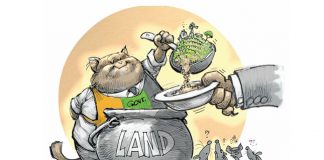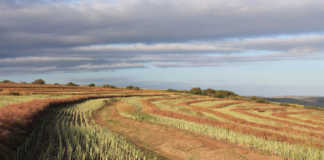
In February 2017, death robbed humanity of a remarkable man who had set out to improve the world: Hans Rosling.
A Swedish physician, statistician and public speaker, he was the founder of the Gapminder Foundation, an organisation dedicated to making statistics more easily understood, and to fighting the ‘devastating ignorance’ of people who should know better. People like you and me.
Hard, unshakeable facts don’t embed themselves easily in our minds. Most of us consistently get a distorted picture of the world around us.
You don’t believe me? Rosling’s audiences didn’t either, so he produced a series of questions to test them. Here are four. Test yourself.
- What percentage of the world’s one-year-old children are vaccinated against some diseases? 20%; 50%; 80%.
- In the past 20 years, the percentage of people living in extreme poverty has …? Almost doubled; remained about the same; almost halved.
- How many years have women in the world aged 30 spent in school? Seven; five; three.
- How many deaths take place each year in the world from natural disasters? One million; 500 000; less than 100 000.
The answers: 80%; almost halved; seven; less than a 100 000.
Getting it wrong
How did you do? I’ll bet that in every case you saw the situation as worse than it actually is!
Don’t worry. Most people do.
From the numerous talks Rosling gave to audiences around the world, which often included leading academics, business people and politicians, he came to the conclusion that this consistent ignorance was due to a number of factors:
- Distorted perception: Our views of the world are moulded by our own highly selective personal experiences, distorted by our personal biases, and influenced by the media, which peddles bad news before all else.
- Outdated facts: People carry around with them a mental library of outdated facts, sometimes dating back to their schooldays.
- Systematic misinterpretation: This behaviour, which Rosling identified and named, can be attributed to the way our brains trick us and so affect the way we perceive the world around us.
Rosling’s final contribution to mankind, just before his death at 68, was to co-write Factfulness: Ten reasons we’re wrong about the world – and why things are better than you think (Flatiron Books).
It’s essential reading by anyone who needs to develop a realistic world view, and that’s everyone.
The challenges of fake news
In today’s world, we have the added challenge of having to cope with ‘fake news’, which is distributed by dishonest people to advance their own agendas.
People have been spreading malicious lies forever; the difference is that today’s social media platforms make it far easier to disseminate lies.
And now, in addition to fake news, we have fake voices! A Canadian company called Lyrebird has developed digital software that can recreate anyone’s voice and get it to say almost anything.
Its software engineers have produced a promotional video of a ‘meeting’ between Barack Obama, Donald Trump and Hillary Clinton discussing the merits of Lyrebird’s new invention, but this, of course, never took place.
Can you imagine the dangers this technology opens up?
The decisions we take in our personal and business lives are based on our understanding of our environment. While we cannot influence the deluge or content of information that reaches us, we can decide what to take on board and what to ignore.
We need to take great care to separate the facts from the fiction. Hans Rosling has shown us the way.
Hans Rosling gave a number of TED talks. They can be viewed at ted.com.











